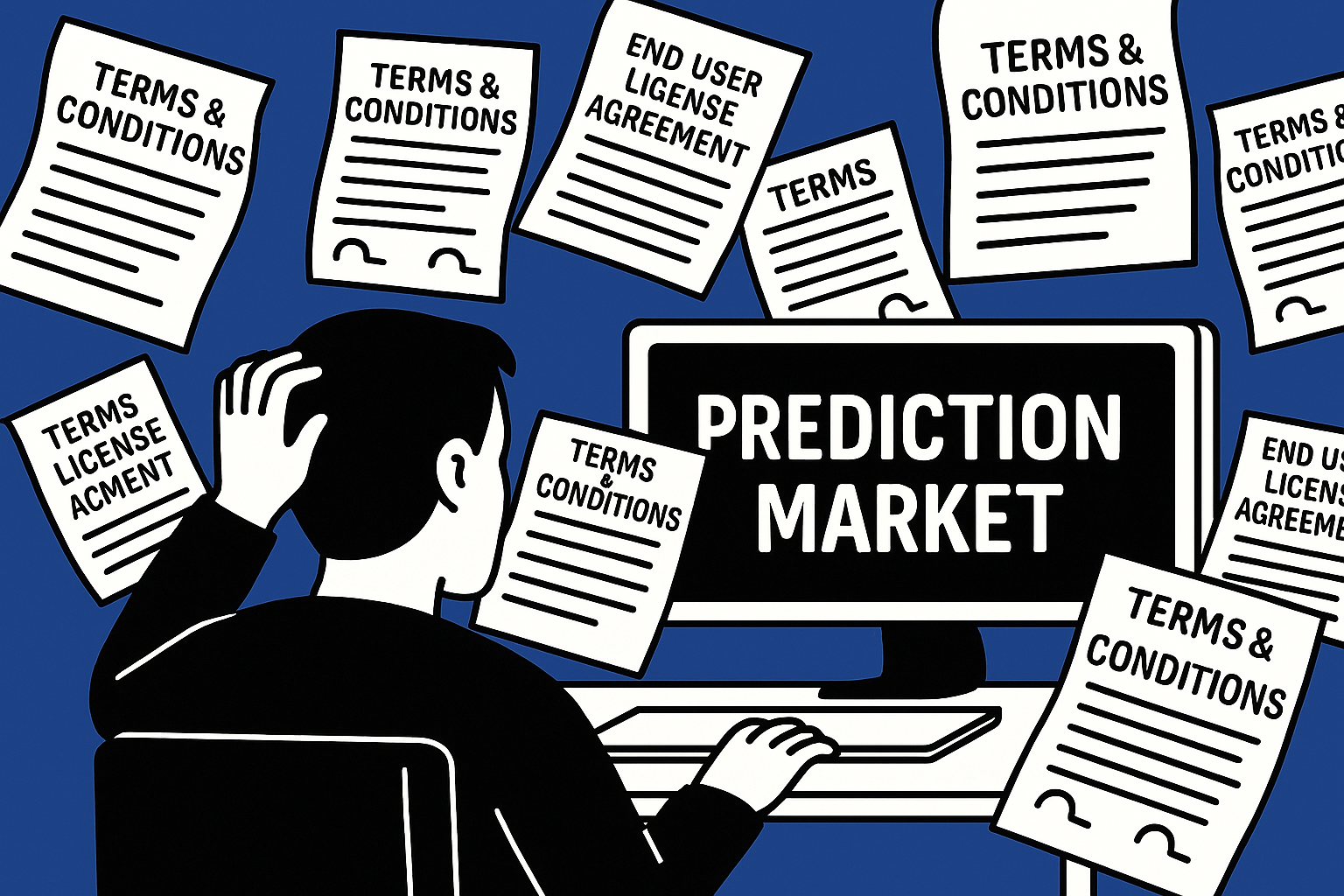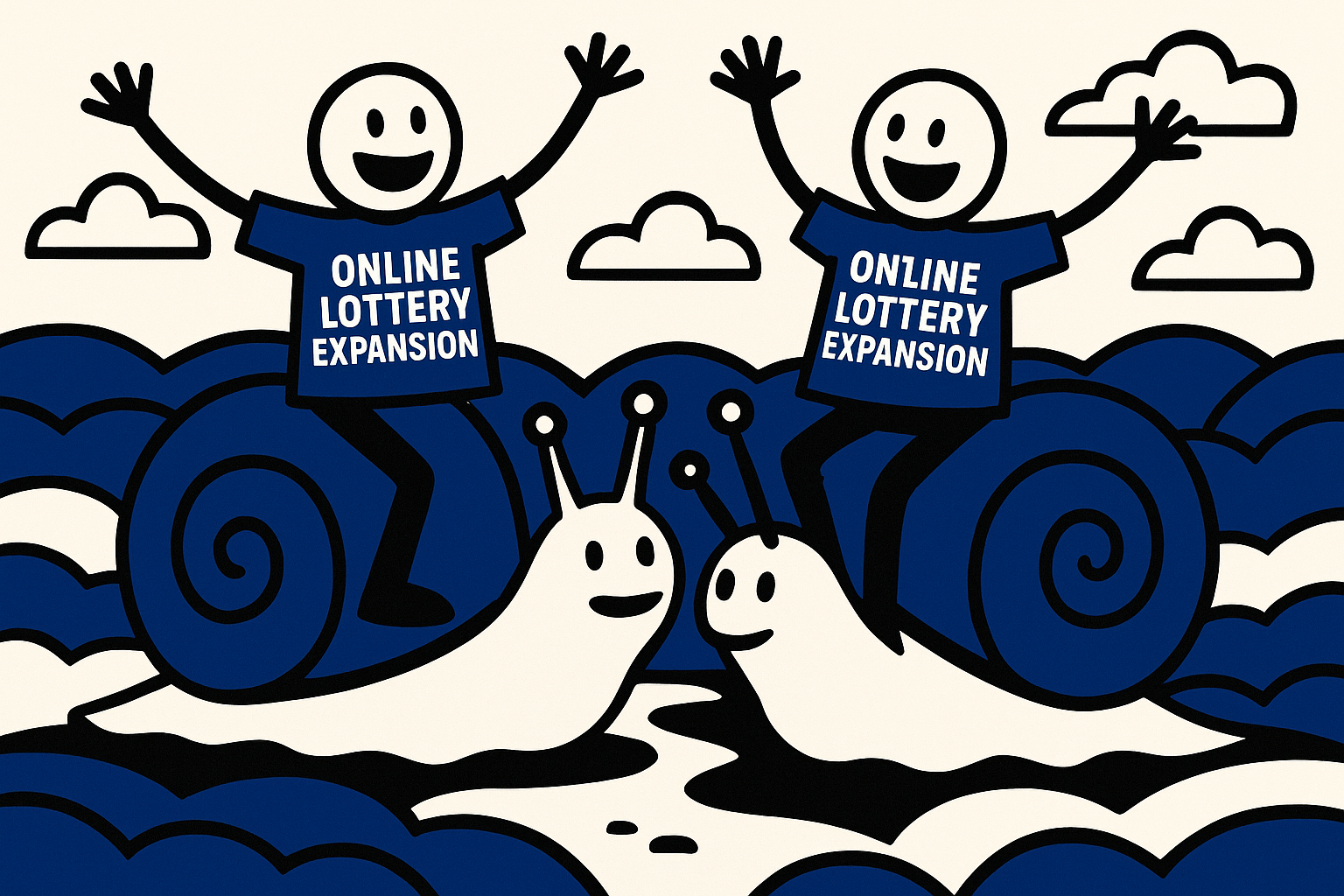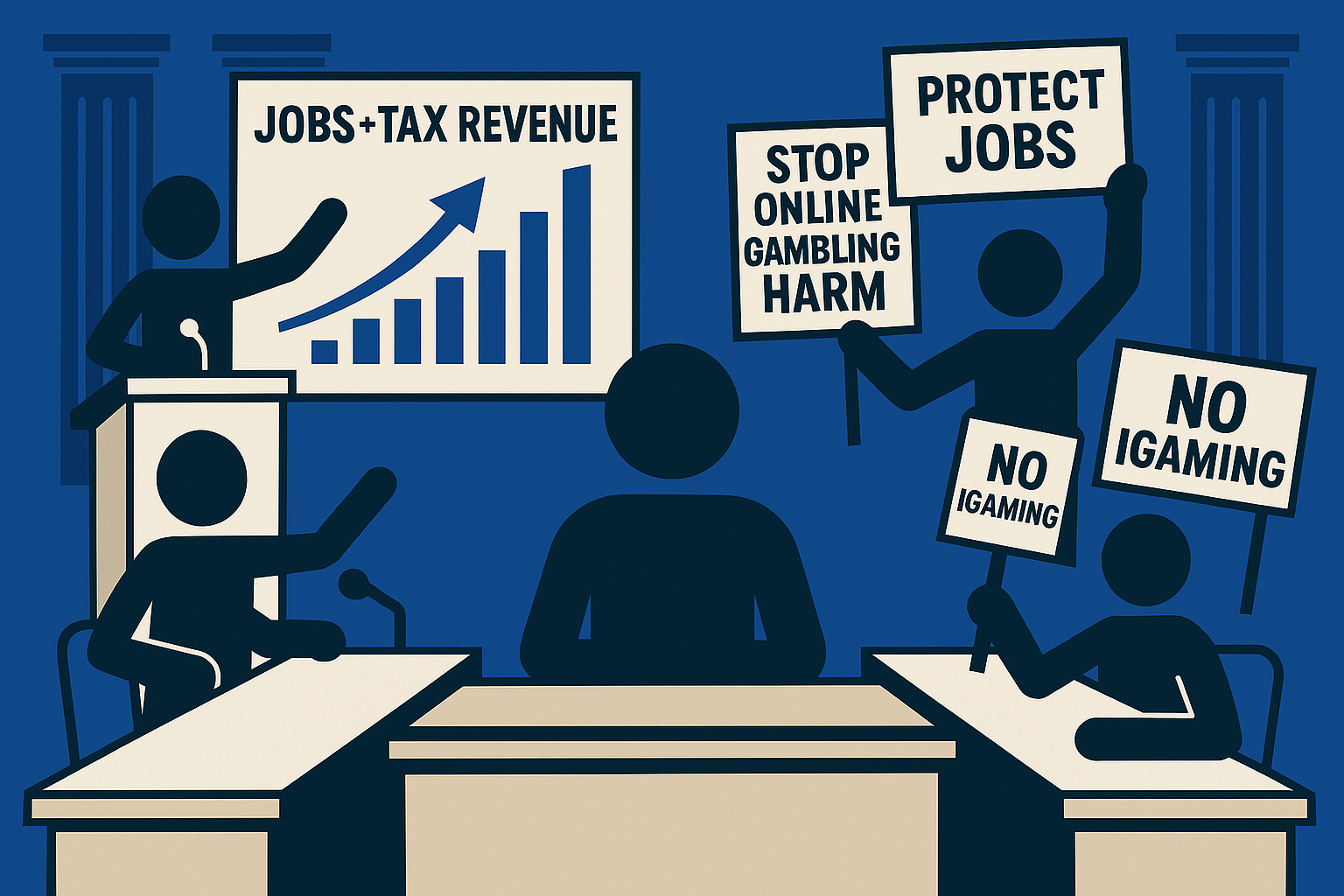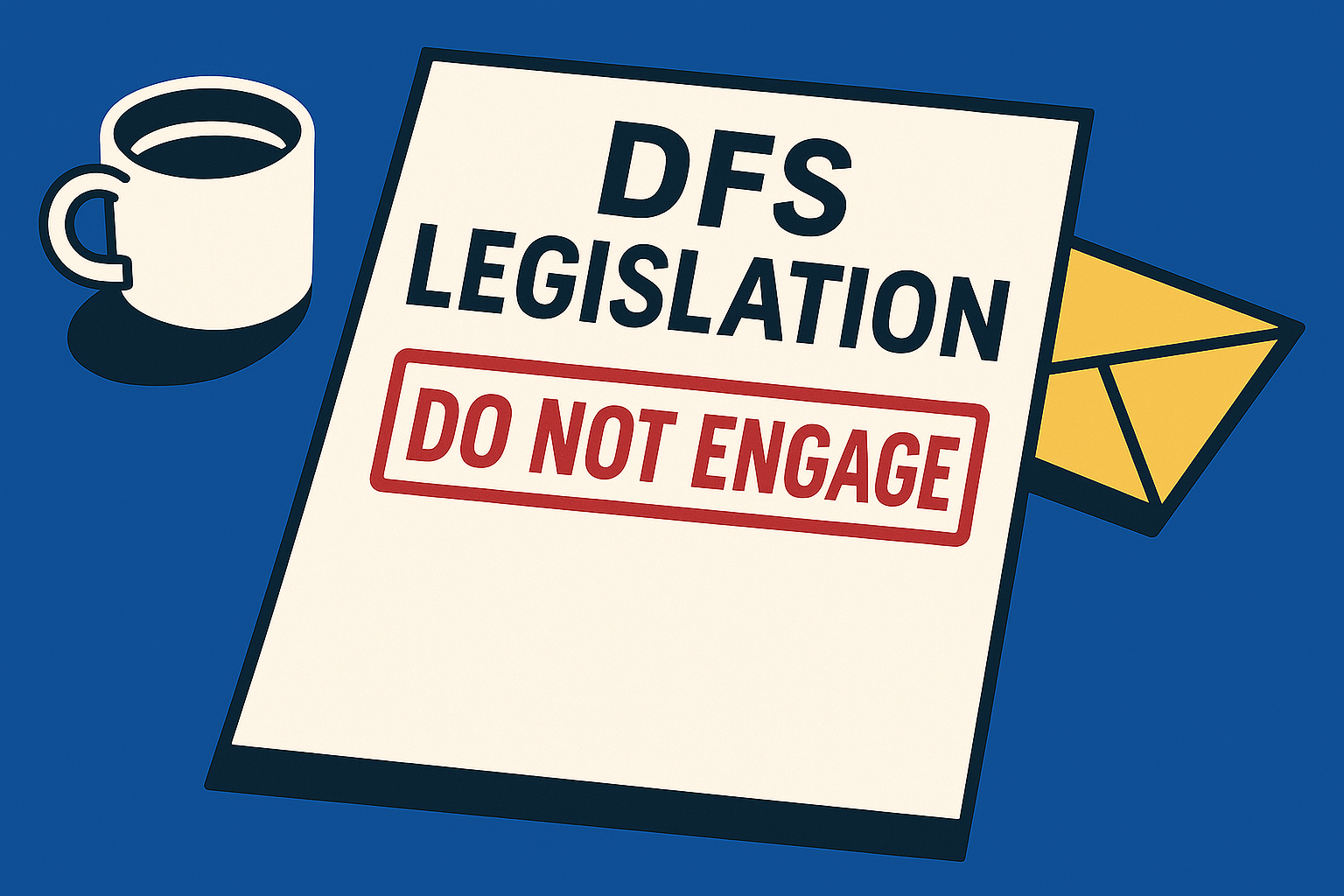During the first two rounds of March Madness, nearly $250 million in sports event contracts flowed through the prediction markets hub that Robinhood launched in partnership with Kalshi.
The sheer volume of trades as the 2025 NCAA Tournament got rolling demonstrates the impact that prediction markets — thinly veiled sportsbooks, to many industry observers — could have on the sports betting landscape.
While traditional sports betting operators look over their shoulders at the likes of Robinhood, Kalshi, Polymarket, and Sporttrade, and state regulators grapple with the perceived threat to their oversight and tax revenue, the emergence of these platforms is a positive development for bettors, argues Captain Jack Andrews, a prominent professional sports bettor and player advocate.
“Any time you have innovation in a market, you increase competition,” Andrews told Comped. “You increase the ability for the wealth to be spread around. And for the player, competition’s a great thing.”
Options in states without sports betting, ‘line shopping’
There’s also, of course, the reality that sports betting is not yet legal in several states. If you’re in California, Texas, Wisconsin, or Georgia, for example, Kalshi and its brethren represent your only legal options, albeit gray, to get in on the action.
They also present new outlets at which to “line shop” — sharp or not, savvy bettors know it’s important to find the best odds for their wagers.
As of this writing on Wednesday, May 7, the Boston Celtics were priced at Kalshi with a 32% chance to win this season’s NBA championship. That translates to +213 odds, better than any of the major regulated US sportsbooks are offering. If you’re looking to bet on a Celtics repeat, Kalshi offers a higher payout than DraftKings, FanDuel, or BetMGM.
The more markets, the better for the bettor.
“If we have multiple prediction markets, it’s like having multiple stock markets,” Andrews said. “You’re going to have the ability [to find] the price in one is different than the price in the other.”
Won’t get kicked out here
While they represent a small percentage of the sports betting population, sharp bettors find prediction markets particularly appealing. Since they don’t operate as the house, these platforms don’t care if a customer consistently ends up on the right side of the trade.
Instead, they serve as a conduit for trades, some between peers and others bought or sold by market makers.
Conversely, a sportsbook will limit customers’ wagers to literal pennies if it believes they have an edge. DraftKings, in fact, has been public about its policy of not wanting action from winning customers.
The consolidation of the industry is exacerbating the sharps’ headache.
“The players are really starting to be like, ‘I’ve got nowhere to bet because I’ve only got these five sportsbooks in my state, and all of them have limited me because they don’t want to take sharp action,’” Andrews said. “On a prediction market or an exchange, you’re not going to get limited because you are basically at the whim of the market.”
There’s another side of the coin, however. The more efficient the market, the more difficult it is to find an edge.
“What some of these players don’t realize is the more we get into prediction markets, the more we sharpen the sword,” Andrews said. “We are basically iron sharpening iron — and the market is going to get more efficient faster.”
Coexistence in the ecosystem
To this point, sports menus on prediction markets are limited to individual games (moneylines on a sportsbook app) and championships (futures odds). You won’t find point spreads, player props, and perhaps most significantly in terms of reaching public bettors, parlays, which are becoming increasingly larger portions of sports betting operators’ profits.
Books and public bettors both love parlays. The former because of the enormous house edge, the latter because of the chance at hefty payouts for small risk. They’ll find edges in parlays sometimes, but sharp bettors tend to avoid these wagers.
This dynamic means there’s room in the betting ecosystem for both sportsbooks and prediction markets, said Captain Jack, who co-founded Unabated, a website that provides tools to help bettors find edges.
“There are a lot of sportsbooks that basically all they’re doing are parlays, same-game parlays of player props,” he said. “So for them to stay on the state level and get plenty of action from all the recreational bettors out there seems viable. And then the serious bettors could bet on an exchange or prediction market. So I think there’s a viable path forward for all parties to coexist.”





